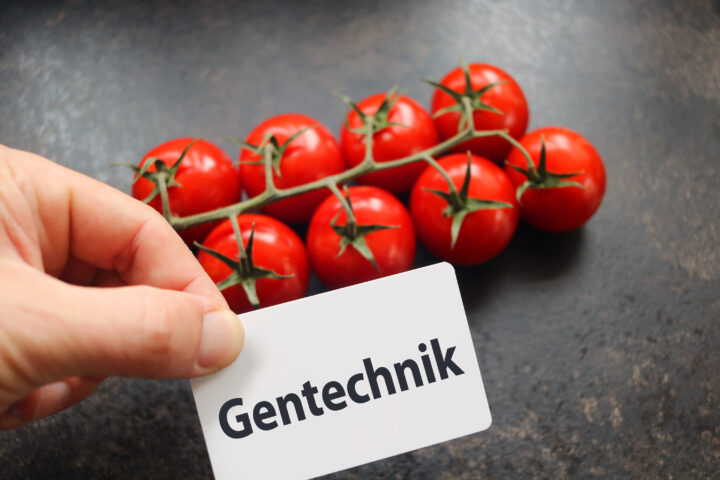
ESG reporting: little has been achieved apart from expenses
The ESG criteria (Environmental, Social, Governance) are intended to guide companies towards sustainable action and transparency. Companies have to invest considerable resources in complying with regulations and preparing reports. The workload is constantly increasing. For many companies, these requirements are an enormous bureaucratic burden – with little or no benefit for actual sustainability.
Monday, February 10, 2025
Michele Salvi of Avenir Suisse describes the current situation in an NZZ article on the subject as a ‘regulatory trap’ in which companies are drowning in a sea of regulations. The food industry provides an example. Thomas Kopp of Terravera describes in the aforementioned article how the requirements for sustainability certification are constantly increasing the administrative burden. The company has to comply with numerous standards on occupational safety, pesticides and health protection. ‘It's almost impossible to do everything one hundred per cent correctly,’ says Kopp. The bureaucratic burden ties up resources without leading to real progress in sustainability.
This ever-increasing reporting burden affects all companies, but most of all SMEs, which have fewer staff and resources than large companies. For SMEs, this means an enormous burden that pushes innovation and sustainable projects into the background. Clemens Gütermann, managing director of Villiger, the well-known cigar manufacturer, describes it this way: ‘To calculate the CO2 footprint, you have to specify the energy consumption and estimate how much the building insulation contributes and also how much renewable energy is used.’ Information that many SMEs do not have readily available. The additional work involved in providing this information weighs heavily on SMEs and erodes their competitiveness in the medium term.
Another problem is not only the extent of ESG reporting, but also the fact that these requirements are constantly changing. If companies are also active in different countries, they have to comply with different regulations, which further increases the workload and makes it more difficult to implement genuine sustainability. In a member survey initiated by economiesuisse, one survey participant is quoted as follows: ‘The resources we spend on sustainability reporting would be better invested in specific sustainability projects that really make a difference.’ economiesuisse has calculated that annual reporting in Switzerland ties up tens of thousands of workers – who are thus deprived of value-adding activities – and costs hundreds of millions of francs a year to implement.
One man's sorrow is another man's joy
It is therefore not surprising that ESG has become a lucrative business area for auditors and consultants. Companies have to spend a lot of money on external audits and consulting to ensure that they comply with the standards. Auditors and consultants benefit from the complexity of the regulations, while SMEs are discouraged from the actual objective of ESG criteria, namely real sustainability. An old consultant saying proves true: ‘More regulation, more fees.’
Instead of investing in sustainable projects, companies are focusing on meeting the requirements and creating reports. This leads to a distortion of the original objective of ESG criteria: real sustainable change is replaced by bureaucratic hurdles. And so the NZZ also comes to the apt conclusion: ‘Only the hassle is sustainable.’
Kindly note:
We, a non-native editorial team value clear and faultless communication. At times we have to prioritize speed over perfection, utilizing tools, that are still learning.
We are deepL sorry for any observed stylistic or spelling errors.
Related articles

A Holistic Approach to Sustainability
Anything can be sold as “sustainable”. That’s why it’s important to take a closer look at what the term means. On one hand, sustainability includes a time component. On the other hand, it has an ecological, economic, and social dimension.

Price more important for consumers than sustainability label
When buying food, Swiss consumers pay more attention to the price than to sustainability labels. One reason for this might be that many are not aware of what the labels mean. In addition, more and more people are buying their groceries online. This is the result of a survey by the retailer organization Swiss Retail Federation.

Differing perceptions
While the increasing administrative burden is perceived as the main concern in the economy, parts of the population see it differently. Meanwhile, regulations are repeatedly misused as a means of exerting power in the competitive struggle – to the detriment of SMEs.

ARTE documentary: Genetic engineering in organic farming?
The ARTE documentary “Genetic engineering in organic farming?” examines key controversial questions of modern agriculture: Is the general exclusion of new breeding technologies still up to date? Can the resistance of organic farming be justified scientifically?

The Great Suffering of Farmers
Fire blight, Japanese beetles, or grapevine yellows – farmers in Valais, too, are increasingly feeling helpless in the face of the threats posed by nature. More and more often, they lack the means to effectively protect their crops. This makes it all the more important for the Federal Council to place a pragmatic balancing of interests at the forefront when setting threshold values.

Tomatoes in Front of Their Eyes
The submitted “Food Protection Initiative” calls for “GMO-free food.” Leaving aside this illusory demand, its adoption would mean more bureaucracy, more trade barriers, and less innovation. The Swiss Farmers’ Union describes the proposal as “unnecessary” and warns of a setback to the goal of achieving an even more sustainable agriculture.

How our daily lives end up in the water
When residues in our waters are discussed, agriculture is often portrayed as the main culprit. Yet a closer look shows that the sources are diverse and often much closer to everyday life than assumed.

